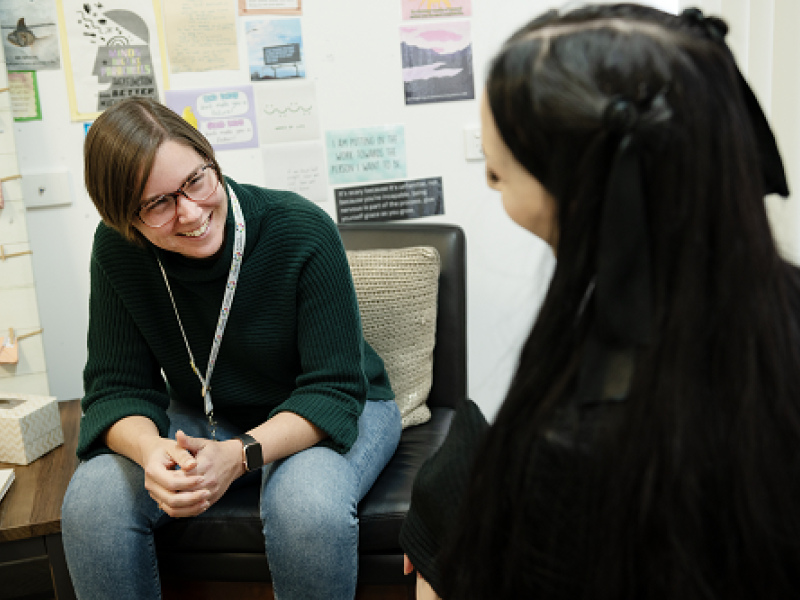by Gill Callister, CEO Mind Australia
Do you remember what you were doing at 14? Maybe you were busy making friends or perhaps you were obsessed with the latest pop star (it was David Bowie for me). Navigating adolescence was probably the biggest challenge of your life at the time.
As another Homelessness Week (7-13 August) is upon us, I’m struck by the words of LJ, who shared her story of homelessness, which started when she was 14.
“I was experiencing discrimination and I was bombarded with hate and negativity. I felt like there was something wrong with me,” she said.
LJ’s turbulent housing experience included couch surfing, living in a friend’s shed and boarding and transitional houses.
These experiences exacerbated her mental ill-health which was already under strain due to traumatic events, toxic relationships and stigma.
“Homelessness significantly impacted my mental health. I had low self-esteem, Post Traumatic Stress Disorder and you just feel like you are so behind in this race called ‘life’.”
Unfortunately, mental health challenges can be a strong indicator of unstable housing and homelessness for a person throughout their life.
Mind Australia’s research with the Australian Housing and Urban Research Institute, along with a host of other studies, confirm this direct relationship between housing and mental health.
The research showed a diagnosed mental health condition increases the likelihood that people will be forced to move from their home within one year by 39%, with the likelihood of financial hardship for people experiencing psychological distress increasing by 89% in the following year.
More than 120,000 people experience homelessness in Australia on any given night. Homelessness Week (August 7-13) encourages us to raise awareness of the causes and impacts of homelessness, so here I am waving the flag for mental health service providers around the country.
People struggling with mental health challenges can fall between the cracks that exist between the mental health system, housing and homelessness and disability support. But you don’t have to be working in the sector to grasp how mental health challenges can lead to homelessness. People without access to mental health support may struggle to maintain a job, a relationship or manage their finances. These things can make it difficult to keep a roof over your head. Our research and work show how the converse is also true. Financial strain and job and housing insecurity in turn negatively impact people’s mental health and wellbeing.
This year’s theme is: It’s time to end homelessness. There are many ways to make this a reality, but we cannot look past the intrinsic link between homelessness and mental health. So, what can we do about it?
Not all answers to homelessness sit within the housing sector and fortunately, both the Royal Commission into Victoria’s mental health system and the current NDIS Review recognise that stable housing is essential for stable mental health. These reform agendas need to be person-centred, integrated and avoid perpetuating the silos that exist between programs and levels of government.
Mind Australia recently called for reform to housing with support for people with a psychosocial disability as part of the NDIS Review, which is due to hand down its findings in October this year. Almost 18% of NDIS participants have a psychosocial disability - a disability arising from mental health challenges that can limit their ability to function, think clearly, enjoy full physical health or manage their social and emotional welfare.
Some will require long-term housing with support to build their capacity and maintain a level of wellness whilst living with their disability.
We believe we have identified a new and effective model of housing with mental health support for people with a psychosocial disability that puts recovery at the centre of support based on the success of The Haven Foundation (THF) – part of the Mind Australia Group. We provide long term housing integrated with 24/7 on-site mental health support from qualified mental health practitioners.
